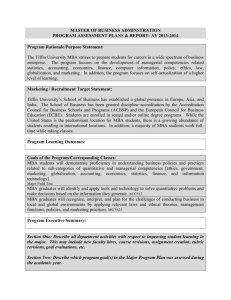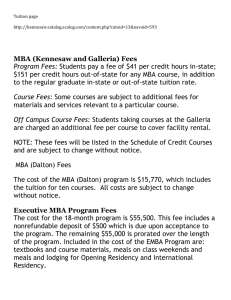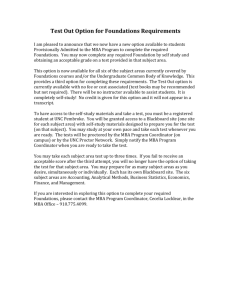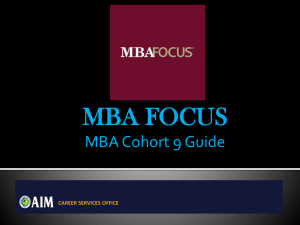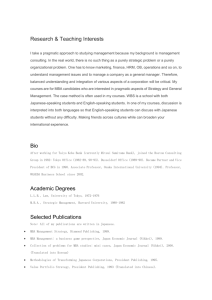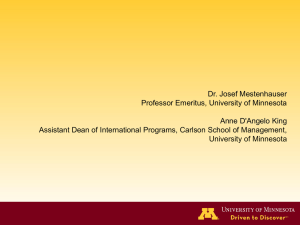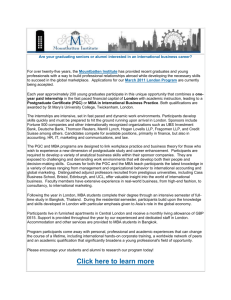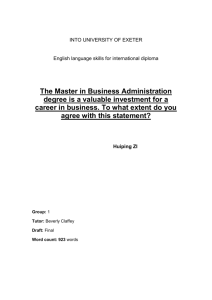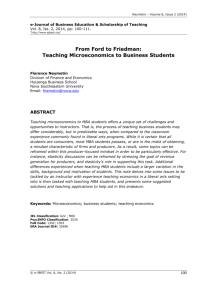School of Business – Assessment Plan
advertisement
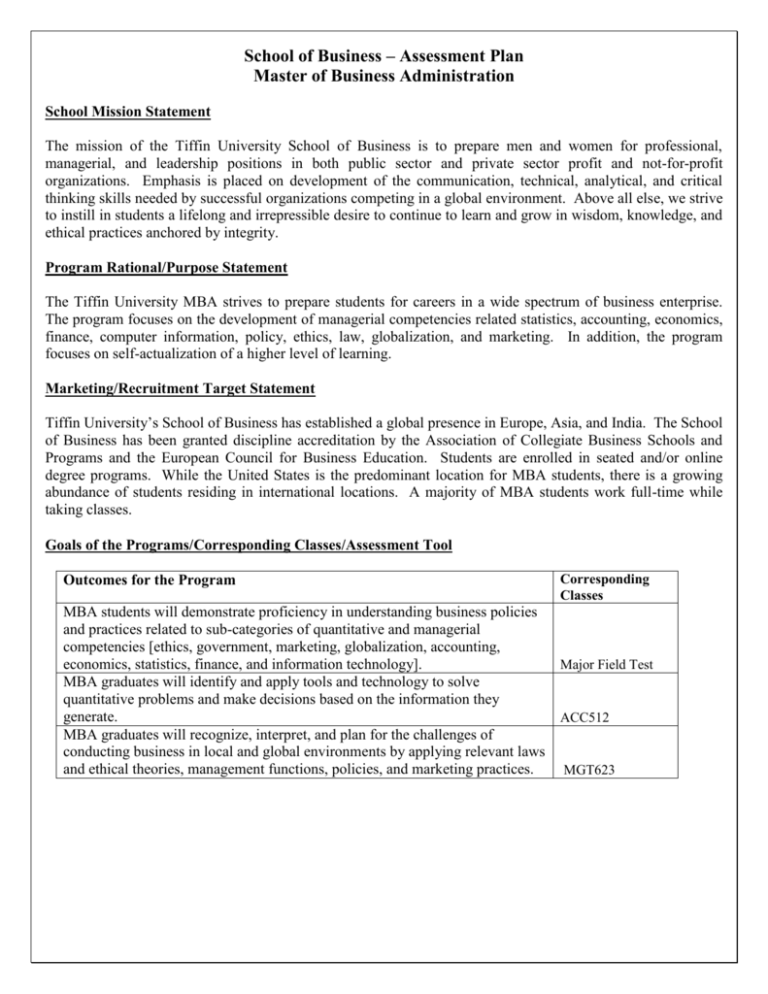
School of Business – Assessment Plan Master of Business Administration School Mission Statement The mission of the Tiffin University School of Business is to prepare men and women for professional, managerial, and leadership positions in both public sector and private sector profit and not-for-profit organizations. Emphasis is placed on development of the communication, technical, analytical, and critical thinking skills needed by successful organizations competing in a global environment. Above all else, we strive to instill in students a lifelong and irrepressible desire to continue to learn and grow in wisdom, knowledge, and ethical practices anchored by integrity. Program Rational/Purpose Statement The Tiffin University MBA strives to prepare students for careers in a wide spectrum of business enterprise. The program focuses on the development of managerial competencies related statistics, accounting, economics, finance, computer information, policy, ethics, law, globalization, and marketing. In addition, the program focuses on self-actualization of a higher level of learning. Marketing/Recruitment Target Statement Tiffin University’s School of Business has established a global presence in Europe, Asia, and India. The School of Business has been granted discipline accreditation by the Association of Collegiate Business Schools and Programs and the European Council for Business Education. Students are enrolled in seated and/or online degree programs. While the United States is the predominant location for MBA students, there is a growing abundance of students residing in international locations. A majority of MBA students work full-time while taking classes. Goals of the Programs/Corresponding Classes/Assessment Tool Outcomes for the Program MBA students will demonstrate proficiency in understanding business policies and practices related to sub-categories of quantitative and managerial competencies [ethics, government, marketing, globalization, accounting, economics, statistics, finance, and information technology]. MBA graduates will identify and apply tools and technology to solve quantitative problems and make decisions based on the information they generate. MBA graduates will recognize, interpret, and plan for the challenges of conducting business in local and global environments by applying relevant laws and ethical theories, management functions, policies, and marketing practices. Corresponding Classes Major Field Test ACC512 MGT623 Intended Outcomes/Assessment Criteria Intended Outcomes #1: MBA students will demonstrate proficiency in understanding business policies and practices related to subcategories of quantitative and managerial competencies [ethics, government, marketing, globalization, accounting, economics, statistics, finance, and information technology]. Assessment Criteria: MBA graduates taking the ETS MBA Major Field Test will score in the 50th percentile in the overall score as well as on the sub-scores. Intended Outcomes #2: MBA graduates will identify and apply tools and technology to solve quantitative problems and make decisions based on the information they generate. Assessment Criteria: 75% of students will achieve 90% or higher on the Accounting Cost System Exam in ACC 512. Intended Outcomes #3: MBA graduates will submit an assignment focusing on business in local and global environments considering relevant laws and ethical theories, management functions, policies, and when applicable, marketing practices. Assessment Criteria: 75% of students will achieve 90% or higher on the Legal and Ethical Issues Major Paper in MGT 623.
